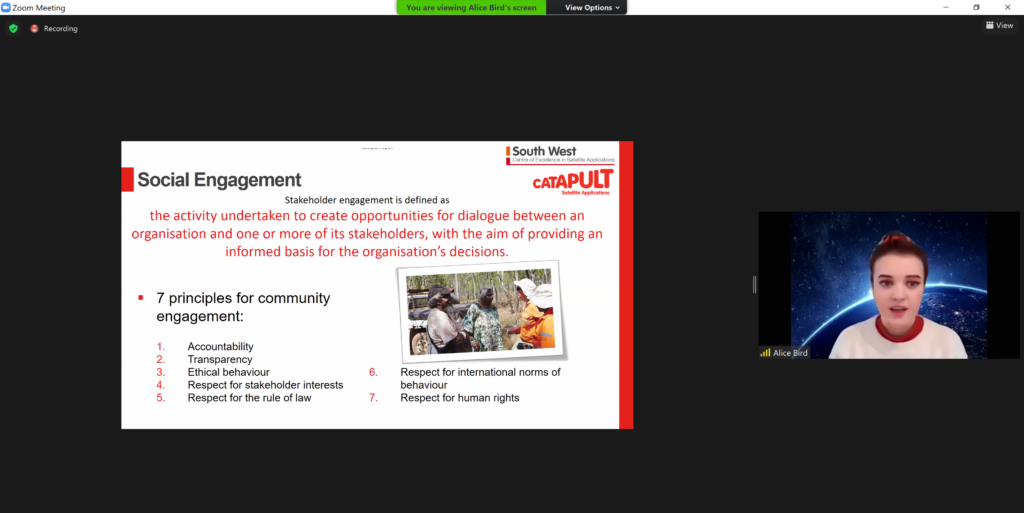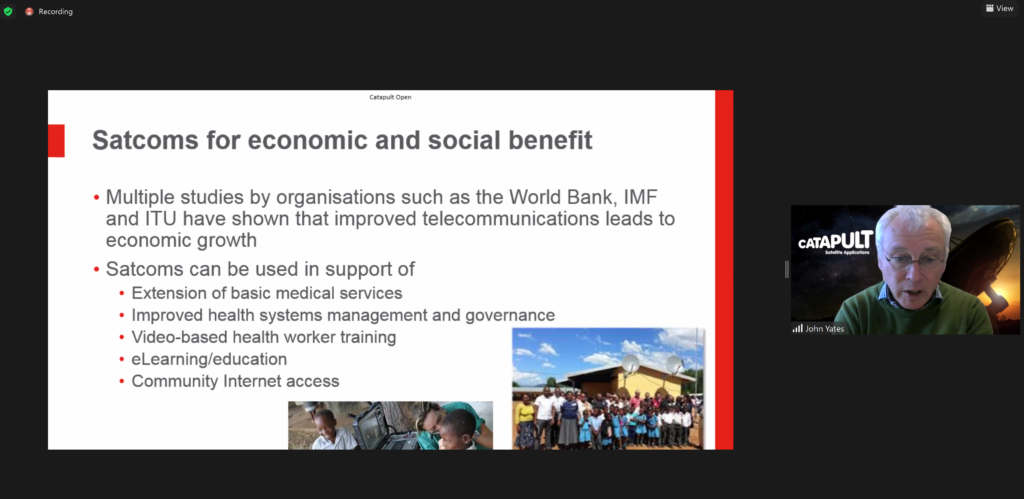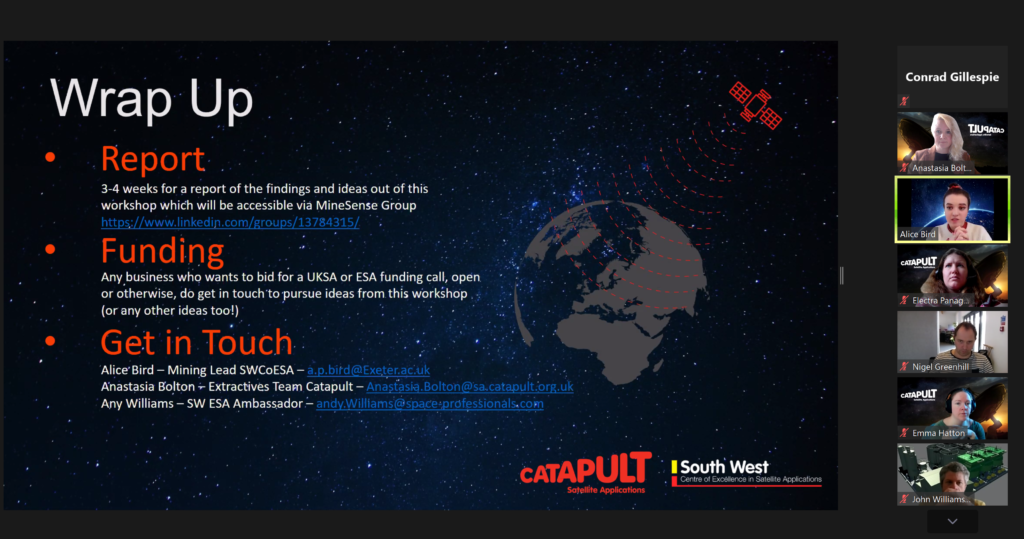On February 10 2021 a Spark Session was carried out by the Satellite Applications Catapult in partnership South West Centre of Excellence supported by the UK Space Agency. The workshop explored opportunities for the use of satellite technologies to help solve the social challenges faced by the mining industry today. Social License to Operate (SLO) is and has been, top of the agenda for the mining industry for years now, but many mining projects rely on traditional methods to tackle the challenges they experience. The session was attended by over 40 organisations from a wide range of cross-sector organisations including representatives from South West Centre of Excellence, Small and Medium Enterprises, Academia and a range of space technologists aiming to discuss and brainstorm how modern space tech could be the key to a more contemporary solution to some major social and human challenges in the industry.

The two areas that the discussions focussed on were local community engagement and illegal/unreported/artisanal mining.
After some fantastic talks from technical consultants, John Yates and Emma Hatton, who got everyone up to speed on current satellite capabilities, the group was split into two to brainstorm.

In the community engagement break out room, ideas surrounding the idea of extending mining operations satellite internet capabilities to the local community to enable people to access better remote learning and health care facilities. There was a conversation about visualisation suites with screens, VR headsets and other tools to help communicate the activities of the mine to the community who may otherwise feel disenfranchised through the use of 3D models and imagery enabled by satellites.
The illegal and artisanal mining group discussed the huge challenge of monitoring large areas of land by expensive, time-consuming, traditional, on foot, methods. A solution proposed suggested using satellite imagery to identify the impacts such artisanal and illegal activities can have on the environment against a baseline map. Indicators and ‘tell-tale signs’ of illegal mining activity could be used to discern where, in large areas, to deploy further investigation of law enforcement using satellite-enabled technologies.

These ideas and results have been written up by teams at the Catapult into a report which is available HERE.
To stay informed and get involved with the outcomes of this spark session and the ideas that could be taken forward this year. Don’t forget to sign up for the MineSense newsletter or join the LinkedIn group.
If you would like to discuss or engage with the conversations going forward surrounding these ideas about social challenges in mining please do get in touch with Extractive Industries Team: Extractives@sa.catapult.org.uk
